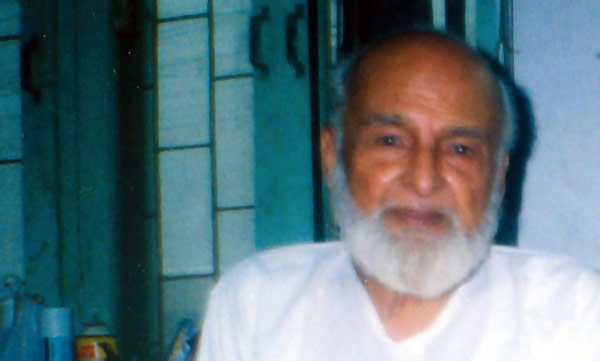S. Ameenul Hasan Rizvi was born in Raichur (Karnataka) on 12 February 1925. He was a distinguished intellectual, journalist and a Supreme Court lawyer.
After graduating from Aligarh Muslim University in 1945, he completed his LLB from Osmania University, Hyderabad in 1948. Known for his selfless service to the cause of the Muslim community, he was an active member of the All India Muslim Personal Law Board for about 15 years.
Some of his prominent works include Supreme Court and the Muslim Personal Law, Dialogues between Hindus and Muslims, Battles by the Prophet (in the light of Qur’ān) and Three Major Errors in 12 English Translations of the Qur’ān.
He was much acclaimed for his strong will and daring initiatives. Many remember how he was never reluctant to write to Prime Ministers on matters of prime importance to the Muslim community in India. He served as the Editor of Radiance Viewsweekly from 1977 to 1985. He left his legal practice to pursue his two passions: Travel and Journalism, and has had his fill in both. Later he served as Legal Advisor to Jamaat e Islami Hind for another three years.
He played an important role in post-Independence India where he voiced many problems faced by the Muslims. He is known to have advocated some of the most important cases in different courts of law. For example, he presented the Shari’ah viewpoint before the Supreme Court in the Shah Bano Case and also pleaded for the Muslims before the Bhagalpur Riots Enquiry Commission.
He was also imprisoned along with other top leaders during the period of Emergency. Reminiscing about the past, his friends and family recall his frank and unswerving dealings with others. A meeting with him once was enough to be inspired by his charismatic personality. He left for his heavenly abode on 5 February 2002 while he was in Bangalore to plead for a case.
His death was an irreparable loss especially at a time where men of such mettle are the need of the hour. Many eminent leaders including Maulana Syed Jalaluddin Umari grieved over his death and called him an invaluable asset while others praised how he spent his life serving humanity with utmost sincerity. His death was condoled by all Muslim organisations.


